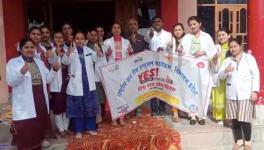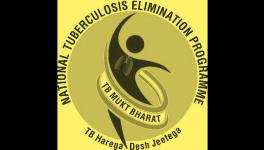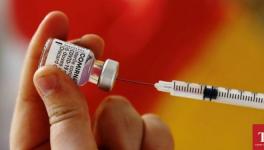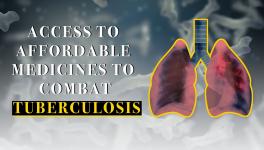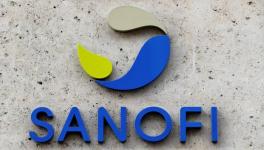South Centre Releases Statement on World TB Day Requesting Govts to Improve Access to Drugs
Representational use only.
The South Centre, an intergovernmental organisation of developing nations, released a statement requesting countries to step up the response to tuberculosis and take all possible measures to expand access to treatment on the occasion of World Tuberculosis Day on March 24.
Amid the ongoing COVID-19 pandemic, the number of people suffering from TB is a colossal 1.8 billion, with most cases from the countries of the global South, the statement noted. Out of the eight countries that account for two thirds of the total cases, India is leading the count, followed Indonesia, China, the Philippines, Pakistan, Nigeria, Bangladesh and South Africa.
TB remains the leading cause of death from an infectious agent to this date, even though it is curable and preventable and the Sustainable Development Goal of ending the TB epidemic by 2030. One of the reasons behind the increasing cases is the growing resistance of the infection to the existing drugs, making it more deadly and difficult to treat. The pandemic has further worsened the gap in access to treatment for TB, especially in the high-burden TB countries in the global South, according to the organisation.
This is because of high prices and lack of generic competition, which act as the biggest barriers against the availability of these drugs these countries. For instance, new drugs like bedaquiline, demanid and pretomanid have been developed that offer better chances against drug resistant TB and are now listed by the WHO guidelines for treatment of drug resistant TB. However, with pharmaceutical companies holding patents for the drugs in many of these high TB burden countries, production and commercialisation can only be undertaken under agreed terms and conditions.
While initiatives like the Stop TB Partnership’s Global Drug Facility and interventions by the Global Fund for AIDS, TB and Malaria, and Unitaid have been launched to improve access to these drugs. But, not all countries are eligible for such initiatives, leaving them to rely either on voluntary donations or procure the drug at market prices from the limited producers available, the South Centre statement said.
Due to the patent issues, the generic drugs can be only produced during “the term of the patent only on the basis of a voluntary license from the patent holder or if governments exercise their right to issue a compulsory license, in view of the public health need for scaled up and affordable access to those drugs”. While the patent holder has to be compensated, the license holder can continue to produce and sell in the territory.
As such, in many countries like India, China, Indonesia, Pakistan, the Philippines and South Africa, ‘secondary’ patents have been “granted or filed on salt forms, dosage forms or use for treatment of MDR-TB in combination with other drugs such as pretomanid”, the South Centre statement said. But more often than not, despite the existence of public health emergency in several high TB burden countries, many of these patent holding companies have “refused to grant voluntary licenses to generic manufacturers on terms that can be beneficial for access, including non-exclusive voluntary licenses through the Medicines Patent Pool”.
Using rigorous patentability requirements, consistent with the Agreement on Trade-related Aspects of Intellectual Property Rights of the World Trade Organisation, such secondary patents can be limited and licenses granted for expansion of access to treatments. The statement said that the governments can “…authorise a relevant department or ministry to exploit by itself or through a contractor, such as a public corporation or a private generic pharmaceutical company, to manufacture and supply the patented drug without the consent of the patent holder.”
Therefore, the organisation has appealed to developing countries across the world to either apply patentability criteria and/or authorise production of essential TB drugs for government use or compulsory licenses, in case these are patent-protected in their territories to scale up treatment for and stall spread of drug-resistant TB.
Get the latest reports & analysis with people's perspective on Protests, movements & deep analytical videos, discussions of the current affairs in your Telegram app. Subscribe to NewsClick's Telegram channel & get Real-Time updates on stories, as they get published on our website.









